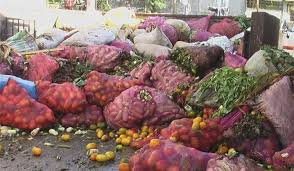Nigeria’s Minister of Agriculture and Food Security, Abubakar Kyari, says that the ministry is working towards reducing post-harvest losses in the agricultural sector by 25 per cent as part of its broader efforts to ensure food security and boost domestic production.
Speaking at the Special Agro-Industrial Processing Zones High Level Implementation Acceleration Dialogue in Abuja, stated that the Special Agro-Industrial Processing Zones is a government initiative that boosts agriculture through targeted investments, integrating farming, processing, and marketing to increase productivity, reduce losses, and enhance value addition for food security, jobs, and poverty reduction.
He explained that the project is supported by African Development Bank, International Fund for Agricultural Development, and Islamic Development Bank.
Kyari emphasised the urgent need for a collaborative approach to address the existing challenges within the agricultural sector.
“Our objective is clear: we must enhance our production capabilities and reduce post-harvest losses from the current 45 per cent to 20 per cent,” Kyari said.
“This is critical not only for food security but also for improving the livelihoods of our farmers,” he added. According to him, the SAPZ initiative aims to create agro-industrial processing zones across seven states and the Federal Capital Territory, focusing on key crops like cassava, rice, maize, and cocoa.
He added that the programme is expected to generate approximately 500,000 direct and indirect jobs while also contributing an additional metric tonnage to the nation’s food supply.
Speaking in the same vein, Nigeria’s Minster of Finance, Mr. Wale Edun, reiterated the government’s commitment to industrialisation through agriculture.
“The successful production of food is fundamental to our economic stability,” he said.
“When we achieve our production goals, we will see a significant impact on inflation, interest rates, and ultimately, our trade balance,” he added.
Edun highlighted the collaboration between the federal and state governments, as well as private sector partners, as vital for the success of the SAPZ programme.
“We cannot afford to disrupt domestic production while addressing the immediate food needs of our population. This requires a careful balance of both short-term and long-term strategies,” he added.
In his remarks at the event, the Country Director of the African Development Bank, Abdul Kamara, stated that the SAPZ programme has the potential to transform the rural economy.
“By reducing post-harvest losses from 50 per cent to 10-20 per cent, we can make a significant contribution to the economy and improve food security,” Kamara said.
GIK/APA


